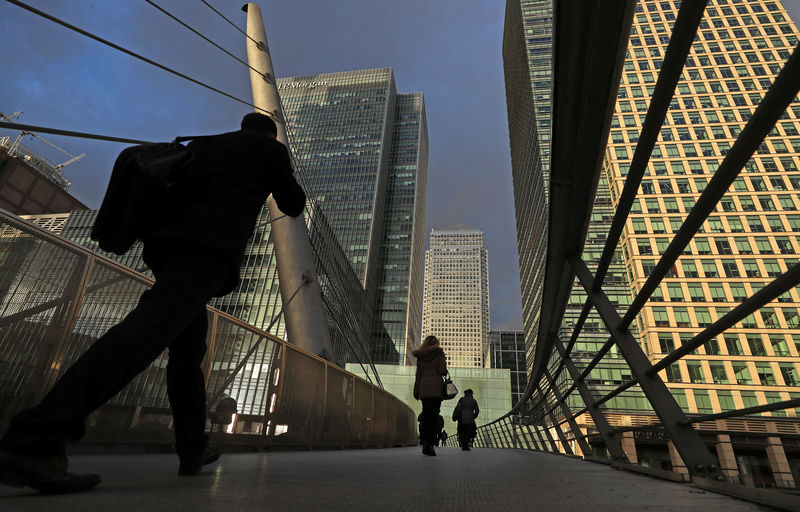LONDON (Reuters) - British private-sector employers expect to give staff a basic annual pay rise of 2.5 percent this year, the same as in 2018, though some will delay awards until after government Brexit plans are clearer, an industry survey showed on Thursday.
British wage growth rose to its highest in a decade at the end of last year at 3.5 percent, and the Bank of England sees only a slight slowdown in 2019 as employers struggle to find staff in the face of the lowest unemployment in decades.
XpertHR, a company that collates data on pay settlements at large employers, said firms it surveyed expected on average to award pay rises of 2.5 percent this year.
Before 2018, 2 percent was the standard pay rise offered.
Britain's official measure of average weekly earnings growth usually exceed typical pay settlements as it also includes pay rises workers get through job moves and promotions.
"Based on the pay activities of employers so far this year and the increases planned, 2.5 percent looks set to be the benchmark pay award across the economy for 2019," XpertHR pay and benefits editor Sheila Attwood said.
The BoE cites a tight labor market and weak productivity growth as the main reasons why it will need to raise interest rates over the medium term, though for now Brexit is keeping its rate rise plans on hold.
XpertHR said firms were offering higher pay in order to match their competitors and to tackle recruitment and retention issues, while higher mandatory employer pension contributions and Brexit uncertainty were factors weighing on pay.
"Some (staff) will have to wait until beyond their normal review date as a number of employers are delaying a decision until the impact of Brexit on their business can be fully assessed," the report said.

Prime Minister Theresa May asked the European Union on Wednesday to allow Britain to delay Brexit until June 30 and EU leaders are expected to discuss the matter at a summit on Thursday. The decision must be taken unanimously by all remaining 27 EU members.